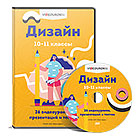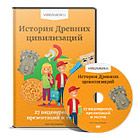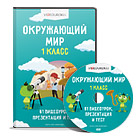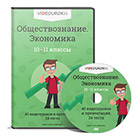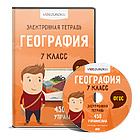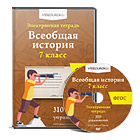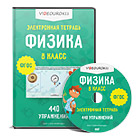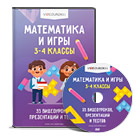Task: Let's Write a Newspaper Story!
During this project you are going to become a real newspaper writer. Your teacher is going to offer you four story ideas to choose from, or you can pick your own story.
Think about what interests you. Also think about what you need to do to write a successful newspaper story — things like writing a good lead sentence, spelling correctly, and putting an interesting quote in your story. Your story and the stories of other students will go together to make a class newspaper.
Circle your story choice:
Mission to an Asteroid
Natural Gas Cars
Space Science Camp
Start Recycling!
Pick Your Own Story
Why did you choose this story? Give three reasons.
____________________________________________________________________________________________________________________________________________________________________________________
Write down what you should do to make this a successful newspaper story — one that your readers will understand and enjoy.
1)_____________________________________________________
2)_____________________________________________________
3)_____________________________________________________
4)_____________________________________________________
5)_____________________________________________________
Tips from the Pros
You’ve just been assigned to write a story for your newspaper. Here are some tips to help you write a good one.
Who – What – When – Where – Why – How. Almost all newspaper stories start off by answering most of these questions. Try to answer these questions in your story. For example: “Sherry Smith won first place in the Cutest Pet contest yesterday at Columbia Mall.” Check your local newspaper for more examples.
Accuracy. Your writing might be wonderful, but if you don’t get the facts right, people won’t believe what you write the next time. Make sure everything you say is true. And spell people’s names correctly — they get upset when you don’t.
What makes a good story? Anything that could interest or affect your classmates, teachers, school or family will make a good story. For example, science topics like the strange worlds of the planets and how the weather works … school activities such as fund-raisers, what goes on in music classes, and the importance of safety patrols … after-school activities … a review of a book you enjoyed … or how middle school will be different from fourth grade all could make good newspaper stories. Be curious. Ask yourself, “What would I like to know more about?” — then write a story about it.
Interviews. You may want to interview someone to get the facts. Here’s what to do:
• Make an appointment. Call or meet with the person, tell them what kind of a story you want to write, then set a time and place for the interview.
• Prepare questions. Write down the questions you want to ask. For example, “How long have you been working here?” “What do you like most about your job?” and “Is there anything you would like to tell our readers?”
• Take tools. Take a small notebook and two pens or pencils to the interview.
• Write it down. Take notes as the person answers your questions — you want to be sure to quote the person accurately in your story. It’s OK to ask the person to repeat what they said or ask them what they mean if you don’t understand them the first time. The main thing is to get it right.
Research. Use encyclopedias, dictionaries, almanacs and other reference materials to get the facts you need. More and more reporters are doing their research on the Internet. Research includes interviewing people — such as a professor or doctor or coach — who know the facts. And your research may be just your own observation of an event: for example, reporting on the visit of a policeman and his dog to your class.
Writing the story. Start with a good lead — a sentence that grabs your reader and makes her want to read more — for example, “The fourth grade class painted one wall of their classroom with a picture so strange that their teacher immediately sent for the principal.” Write your story plainly so that everyone can understand it. If possible, use quotes in your story to make it more interesting – for example, “The flames were so hot I thought my helmet would melt,” the firefighter said. And remember to answer the questions Who – What – When – Where – Why – How.
Writing to Inform
Development
*All necessary information needed to understand the story is present
*Ideas and actions are fully developed and explained
Organization
*Ideas are organized logically (Beginning, Middle, and End)
*Topic sentence (the story lead) introduces the topic
*Sufficient, appropriate details fully support the topic
*Concluding sentence ties the story together
Attention To Audience
*Enough information is presented so reader can understand the topic
*Story answers questions the reader might have
Language
*Vocabulary is appropriate for the topic
*Precise, appropriate, and descriptive language adds meaning to the story
*Variety of sentence structures and use of linking words or phrases, as
appropriate, make the story easy to read and understand
Linking Words and Phrases:
To introduce and organize ideas First, …To begin with, … Next, … Another …In addition
To introduce details
For example, …For instance, … In fact, … such as … including
To compare and contrast
| Similarly | Compared to | Have in common |
| Even though | Rather than | On the other hand |
| On the contrary | Although | As opposed to |
| However | In contrast | Otherwise |
Visual Organizer
Almost all newspaper stories start off by answering most of these questions. Try to answer these questions in your story.
Who:__________________________________
What:__________________________________
When:_________________________________
Where:_________________________________
Why:__________________________________
How:__________________________________
Lead Sentence (a sentence that includes some of the information above and that grabs the reader)
______________________________________________________________________________
_______________________________________
Edit Your Story!
You’ve written a GOOD story. But before you turn it in, edit it — go over the story again, fixing mistakes, maybe rewriting some things — and turn it into a GREAT story. Here’s how.
Make sure you have included who – what – when – where – why – how.
Don’t editorialize . That means, don’t put in what you think or believe. For example, don’t write: “Science is the most useful subject you can take in school.” That’s your opinion and other people might disagree with you. And, besides, how can you prove it?
Write clearly, using simple words. Imagine that you are telling the story to your friend.
Check the spelling of all words, especially people’s names.
Make sure your quotes are accurate and in the proper form, like this: “I enjoy being a safety patrol,” Carol said. Remember: the comma goes inside the quote mark.
Numbers. Spell out numbers 1 to 9, and use figures for 10 and above. For example, “We have two cars and 12 children.” Spell out a number at the beginning of a sentence.
Wrong: “120 children are in the fourth grade.”
Right: “One hundred and twenty children are in the fourth grade.” Or, “There are
120 children in the fourth grade.”
It is OK to start a sentence with the number of a year: “2001 has been an exciting year.”
Practice your editing skills with the story below, and then edit your own story.
A large family of bats is pretty scary. They have started living on the roof of
hammond elementary. Every night at that time of day when the sun is just going down they fly off the roof and circle overhead in search of food and then after about 1 hour they all return to the roof to sleep for the night. “Bats help the environment by eating mosquitoes and other harmful insects”, says Mrs. Robbbertson, our sceince teacher.
Newspaper Layout
You’ve all written great articles that will become part of a newspaper. Your articles will have a headline and your byline, but how do you decide where to place them in the paper? Consider these general guidelines:
Top priority are the articles near the front (pages 1 – 2). These are the news items of interest to all students in your class and perhaps to the whole school: for example, the opening of a computing center, safety topics, or a new principal coming to school.
Next come the “feature” articles, such as:
Stories on a teacher, classmate or event at the school (say, a book fair or a school concert)
Articles about topics outside of school (story about a relative, pet, hobby, etc.)
Sports and entertainment stories.
Science articles on animals, the planets, the sun, etc.
Articles on academic subjects
Feature stories on teachers, a principal or other school personnel
Reviews of Harry Potter books and a biography on author J. K. Rowling.
How long are your articles? If your main story is long and has a photo to go with it, it could take up most of the front page. So, to make room for other stories start your main story on the front page to draw the reader’s attention, then continue — or “jump” — it to an inside page.
What I Have Learned
Think about the newspaper story that you wrote. Think about the process that you went through. Pair up with a partner and answer the questions below.
1) What have you learned about writing a newspaper story? Give five examples.
____________________________________________________________
____________________________________________________________
____________________________________________________________
____________________________________________________________
________________________________________________________________________________________________________________________
2) What did you like about being a reporter? Give two examples.
____________________________________________________________
____________________________________________________________
____________________________________________________________
____________________________________________________________
____________________________________________________________
____________________________________________________________
____________________________________________________________
3) Would you ever want to become a reporter? Give two reasons why or why not.
____________________________________________________________
____________________________________________________________
____________________________________________________________
____________________________________________________________
____________________________________________________________
________________________________________________________________________________________________________________________







